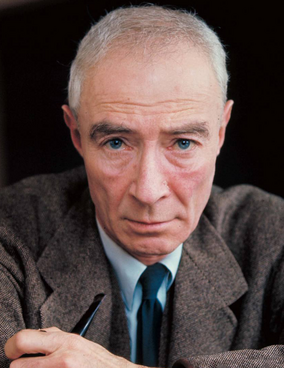The winner is...
Sherlock Holmes and Dr. Watson


Thanos vs. J. Robert Oppenheimer

Thanos

Thanos is a fictional supervillain appearing in American comic books published by Marvel Comics. The character, created by writer/artist Jim Starlin and first appearing in The Invincible Iron Man #55, originally had his design inspired by the DC character Metron. However, editor Roy Thomas advised Jim Starlin that if he took inspiration from any New Gods character, it should be Darkseid, leading to his design being changed before his first appearance.
Born on the planet Titan, Thanos was almost killed by his own mother who foresaw his destiny of wielding the Infinity Gauntlet, which allows the Infinity Gems (Power, Mind, Space, Soul, Time, and Reality), to be used together to whatever end its user wills, effectively granting omnipotence. For Thanos, this was used to kill half the population of the universe in order to impress the female personification of Death, with whom he is obsessed.
Thanos appears prominently in the Marvel Cinematic Universe. Here, Death is omitted entirely and Thanos’ motivation for killing half of all life is based on solving overpopulation and achieving universal “balance”. The MCU version of Thanos quickly became one of the most iconic fictional villains in recent history; the signature scene associated with him occurs at the end of Infinity War, where he succeeds in his ultimate goal and causes the majority of the cast, including favorites such as Spider-Man, Black Panther, and most of the Guardians of the Galaxy, to disintegrate by snapping his fingers with the completed Infinity Gauntlet. He was portrayed by Josh Brolin in Guardians of the Galaxy, Avengers: Age of Ultron, Avengers: Infinity War, and Avengers: Endgame. Before this, he was briefly portrayed by Damion Poitier in a teaser scene at the end of The Avengers.
J. Robert Oppenheimer

Julius Robert Oppenheimer was born on April 22nd, 1904, in New York City, New York. He was a theoretical physicist and professor of physics at the University of California, Berkeley. Oppenheimer was the wartime head of the Los Alamos Laboratory and is among those who are credited with being the “father of the atomic bomb” for their role in the Manhattan Project, the World War II undertaking that developed the first nuclear weapons. The first atomic bomb was successfully detonated on July 16th, 1945, in the Trinity test in New Mexico. Oppenheimer later remarked that it brought to mind words from the Bhagavad Gita: “Now I am become Death, the destroyer of worlds.” In August 1945, the weapons were used in the atomic bombings of Hiroshima and Nagasaki.
After the war ended, Oppenheimer became chairman of the influential General Advisory Committee of the newly created United States Atomic Energy Commission. He used that position to lobby for international control of nuclear power to avert nuclear proliferation and a nuclear arms race with the Soviet Union. After provoking the ire of many politicians with his outspoken opinions during the Second Red Scare, he suffered the revocation of his security clearance in a much-publicized hearing in 1954, and was effectively stripped of his direct political influence; he continued to lecture, write, and work in physics. Nine years later, President John F. Kennedy awarded (and Lyndon B. Johnson presented) him with the Enrico Fermi Award as a gesture of political rehabilitation.
As director of the Institute for Advanced Study in Princeton, New Jersey, Oppenheimer’s achievements in physics included the Born–Oppenheimer approximation for molecular wave functions, work on the theory of electrons and positrons, the Oppenheimer–Phillips process in nuclear fusion, and the first prediction of quantum tunneling. With his students he also made important contributions to the modern theory of neutron stars and black holes, as well as to quantum mechanics, quantum field theory, and the interactions of cosmic rays. As a teacher and promoter of science, he is remembered as a founding father of the American school of theoretical physics that gained world prominence in the 1930s.
Oppenheimer fell into a coma on February 15th, 1967, and died at his home in Princeton, New Jersey on February 18th at the age of 62.
A biopic of his life, written and directed by Christopher Nolan, was released in 2023. This film’s success, which coincided with the release of Barbie, led to the “Barbenheimer” phenomenon and a renewed interest in Oppenheimer’s life.
Let the battle begin
- Thanos
- J. Robert Oppenheimer
0 voters


